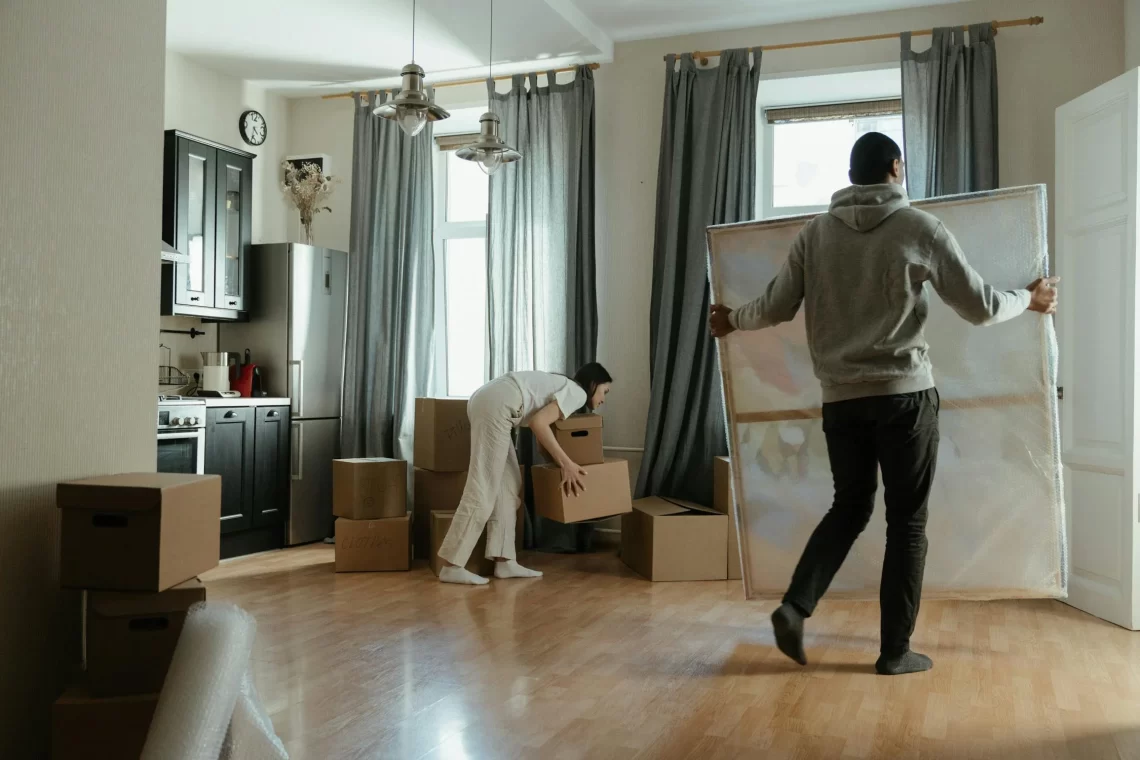Moving to a new home signifies a fresh start and exciting possibilities. However, the journey to your new location can quickly become stressful if not approached with careful planning, especially when it comes to packing. Proper packing isn’t just about convenience; it’s crucial for ensuring that your belongings arrive intact and ready for their new environment.
By understanding and avoiding common packing mistakes, you can significantly reduce the risks associated with moving. So let’s explore some of the key packing mistakes that you should steer clear of to make your move as smooth as possible.
1. Procrastination
One of the most detrimental mistakes when it comes to packing is procrastination. Many people underestimate the time and effort required to pack up an entire household. Starting early allows you to tackle the task gradually and systematically, reducing stress and ensuring everything is packed securely. Begin by packing non-essential items well in advance, leaving daily essentials until the last few days.
2. Not Decluttering Beforehand
Moving presents an excellent opportunity to declutter your belongings. Holding onto items you no longer use or need only adds unnecessary weight and increases the cost of your move. Before you start packing, take the time to go through each room and sort items into categories: keep, donate/sell, and discard. This not only streamlines your packing process but also helps you start fresh in your new home.
3. Using Improper Packing Materials
Using inadequate or improper packing materials is a recipe for disaster. Weak boxes, old newspapers instead of packing paper, and inadequate tape can lead to damaged belongings during transit. Invest in sturdy, appropriately sized boxes, packing tape, bubble wrap, and packing paper to ensure your items remain secure throughout the move. Label boxes clearly with their contents and destination room to simplify unpacking.
4. Overpacking Boxes
While it might be tempting to cram as much as possible into each box to reduce the number of trips, overpacking can lead to boxes breaking or items getting damaged. Heavy boxes are not only difficult to lift but also increase the risk of injury. Distribute weight evenly and use smaller boxes for heavy items like books and dishes, reserving larger boxes for lighter items such as pillows and linens.
5. Ignoring a Systematic Approach
Packing without a plan can quickly turn into chaos. Create a systematic approach by packing one room at a time, starting with the least-used rooms and items. Keep items from each room together and label boxes clearly. Create an inventory list or use a moving app to track your belongings. This methodical approach not only makes packing and unpacking more manageable but also reduces the likelihood of items getting lost or misplaced.
6. Failing to Protect Valuables
Certain items require special attention and care during a move. Valuables such as jewelry, important documents, and fragile items should be packed separately and transported personally, if possible. Use padded boxes or special containers for delicate items and clearly mark them as fragile. Taking extra precautions will help ensure these items arrive at your new home safely.
7. Not Packing an Essentials Box
Upon arrival at your new home, you won’t want to unpack everything immediately. Packing an essentials box with items such as toiletries, a change of clothes, basic kitchen supplies, important documents, and any necessary medications ensures you have everything you need for the first few days without having to search through multiple boxes. This box should be easily accessible and clearly marked to avoid any unnecessary stress during your move-in process.
8. Forgetting to Label Boxes Clearly
Labeling boxes might seem like an obvious task, but it’s often overlooked or done hastily. Clearly label each box with its contents and the room it belongs in. This ensures that movers know where to place them and helps you prioritize unpacking. Use a bold marker and apply labels to multiple sides of the box for easy identification. This simple step will save you a lot of time and frustration when unpacking in your new home.
Photo by on Pexels
9. Neglecting to Secure Liquids and Household Chemicals
Liquids and household chemicals can leak or spill during transit, causing damage to your other belongings. Make sure to securely seal all bottles and containers with packing tape and pack them upright in waterproof containers. Consider transporting hazardous materials separately or disposing of them safely before your move.
10. Not Considering the Weather Conditions
If you’re moving during a rainy or snowy season, take precautions to protect your belongings from the elements. Use plastic covers or tarps to protect boxes during loading and unloading. Additionally, consider renting a climate-controlled storage unit for sensitive items that may be affected by extreme temperatures or humidity. Wrap items in waterproof materials and ensure that nothing is exposed to potential moisture. These steps will help safeguard your belongings against weather-related damage during transit.
11. Ignoring Professional Help When Needed
While packing yourself can save money, certain situations may warrant professional help. If you have large or valuable items that require special handling, consider hiring movers who offer packing services. They have the expertise and materials to pack your belongings safely and efficiently, reducing the risk of damage during transport. Professional movers can also provide insurance coverage for added peace of mind in case of any unexpected incidents during the move.
Eric Taylor, owner of Fort Mill Friendly Movers, says: “When it comes to moving, especially with delicate or valuable items, the expertise of professional movers can make a significant difference. Our team not only ensures that items are packed securely but also handles them with care during transport. Clients often find that the peace of mind from knowing their belongings are in capable hands is well worth the investment in professional packing services.”
Packing for a move doesn’t have to be overwhelming if you plan ahead and avoid these common mistakes. Start early, use the right materials, and stay organized. By doing so, you’ll make your move smoother and start enjoying your new home sooner.
Read more lifestyle articles at ClichéMag.com
Images provided by Deposit Photos, BingAI, Adobe Stock, Unsplash, Pexels, Pixabay & Creative Commons





